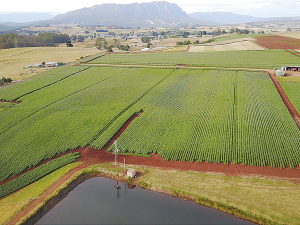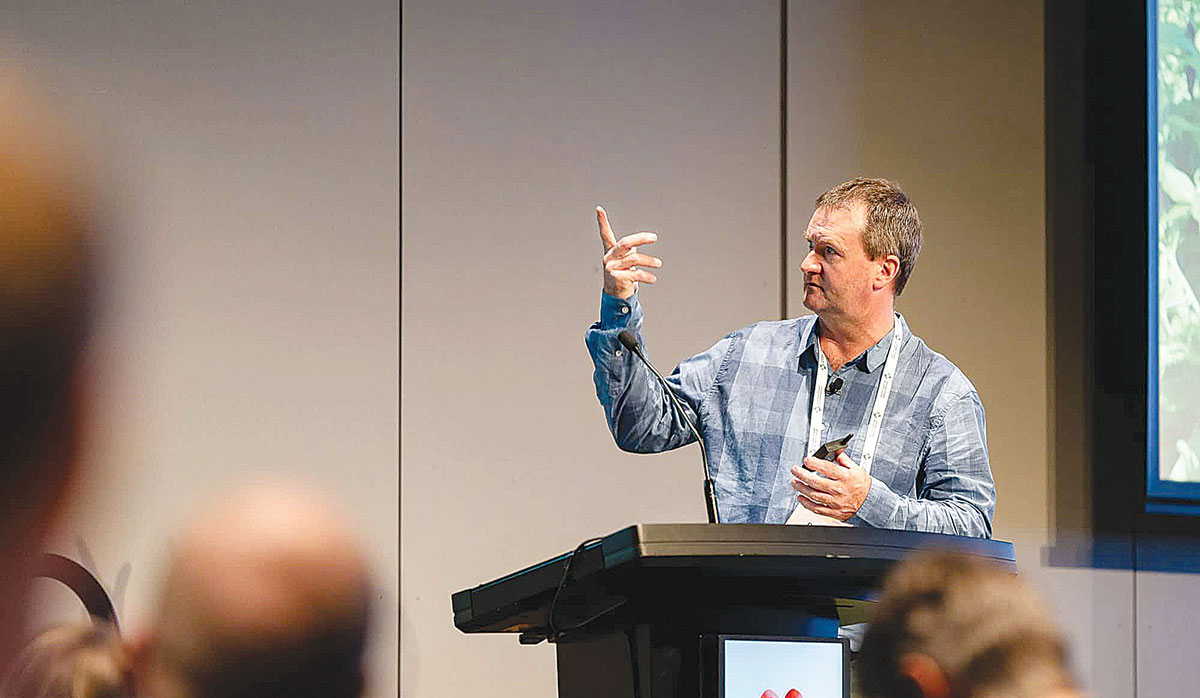'Foodie February' spotlights New Zealand potatoes
This year, 'Foodie February' sees potatoes take the spotlight as one of New Zealand's most powerful and versatile food heroes.
 MG Farms Tasmania produces fresh potatoes year-round for the Coles chain of supermarkets in Australia.
MG Farms Tasmania produces fresh potatoes year-round for the Coles chain of supermarkets in Australia.
Like most vegetables, potatoes need healthy cropping soils.
In Tasmania, potato growers are turning to cover crops as important tools for improving soil structure and health, controlling soil borne disease and weeds, reducing erosion and nutrient loss, and adding nitrogen.
At the recent Potatoes New Zealand conference, Tasmanian potato grower Darren Long spoke about how cover cropping and biofumigation - which is the use of specialised cover crops that are grown, mulched, and incorporated into the soil prior to cropping - have helped him maintain profitable and sustainable farms for the past 20 years.
Long runs the family-owned MG Farms in Sheffield, which supplies Australian supermarket chain Coles with fresh potatoes year-round.
He believes soils are the most valuable and important asset a farmer has.
"If our tractor breaks down, you can buy a new one tomorrow," he says. "If our soils break down, it's a 10-to-12-year process to get it back. So, we are trying to get the best outcome for soils."
Long's cover crop investigation began in the 1990s when he heard how Western Australians were doing but had little sucess in the early years. Long found that the plants weren't controlling the disease. But there were other benefits, located deeper into the soil.
"What we were finding was that we were getting really good soil health with free-draining organic matter, which went in our favour," he explained.
"We were using less water, less fertiliser, and eventually we cracked the code that it wasn't the plants that were providing the disease control, it was the soils. We were finding a healthier soil that is able to tolerate these diseases."
Long believes the advancements made in cover cropping have been the single most important change to farming he's seen in 30 years.
It's an absolute game-changer," he says. "Growers need a full suite of approaches, while there will always be a need for traditional methods, this new research gives growers the ability to improve on-farm productivity and sustainability."
Long says the aim is to be farming smarter and using cover crops to improve the overall health of his soils and the soil structure.
"There is a strong focus on how cover crops are grown and incorporated into the soil using a variety of low impact machinery with minimal passes. The reduction in chemical use isn't necessarily the main point but is a bonus of cover cropping done right," he explained.
 |
|---|
|
Tasmanian grower Darren Long speaking at this year's PNZ Conference in Christchurch. |
"Personally, I've invested almost 15 years of trial and error into cover cropping, having worked closely with other organisations to get to the stage we are at now so that as a whole industry we can share the benefits."
He added that the biggest learning curve that growers are getting out of the project's research is what's available and what's beneficial to the soil.
How it works and the different types of root systems - as well as the exposure to all of these new cover crops taking out the guesswork.
"We can access material where the research tells us the companion plants that work well, which means we don't have to guess what will or won't work."
Twenty years ago, South African dairy farm manager Louis Vandenberg was sent to a farm in Waikato to provide training on Afimilk technology.
Strong farmgate milk price is helping boost investment on farms, says PGG Wrightson chief executive Stephen Guerin.
Fonterra's 460 milk suppliers in Australia, who will switch to Lactalis end of this month, are unfazed with the impending change.
The 5+ A Day Charitable Trust has launched a collection of affordable recipes designed to turn everyday vegetables into seasonal stars.
Jane Mellsopp has been confirmed as the new Government Appointee to the New Zealand Meat Board (NZMB).
To celebrate the tenth anniversary of its annual Good Deeds competition, Rabobank will give away $100,000 to improve rural community hubs, schools, clubrooms, and marae across New Zealand.

OPINION: A mate of yours truly reckons rural Manawatu families are the latest to suffer under what he calls the…
OPINION: If old Winston Peters thinks building trade relations with new nations, such as India, isn't a necessary investment in…